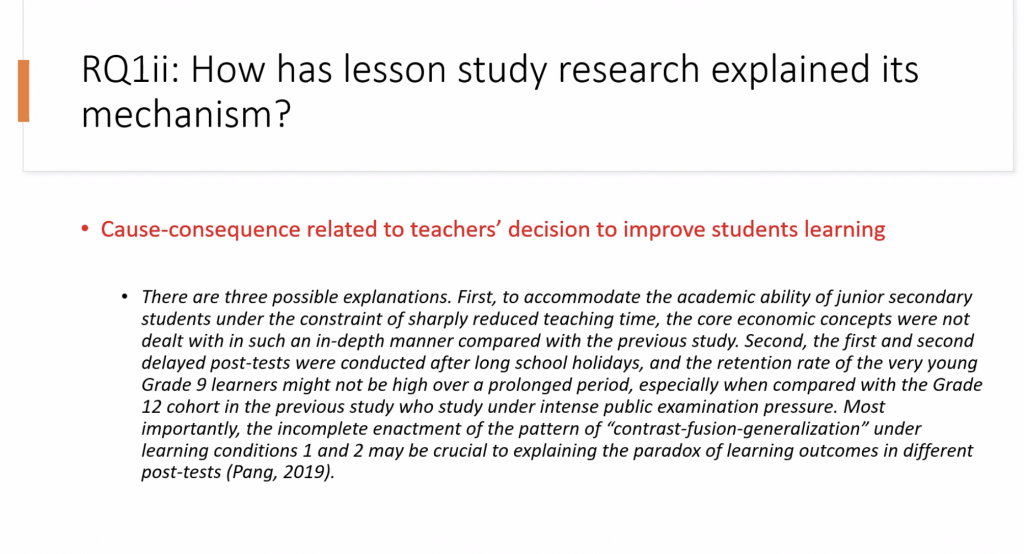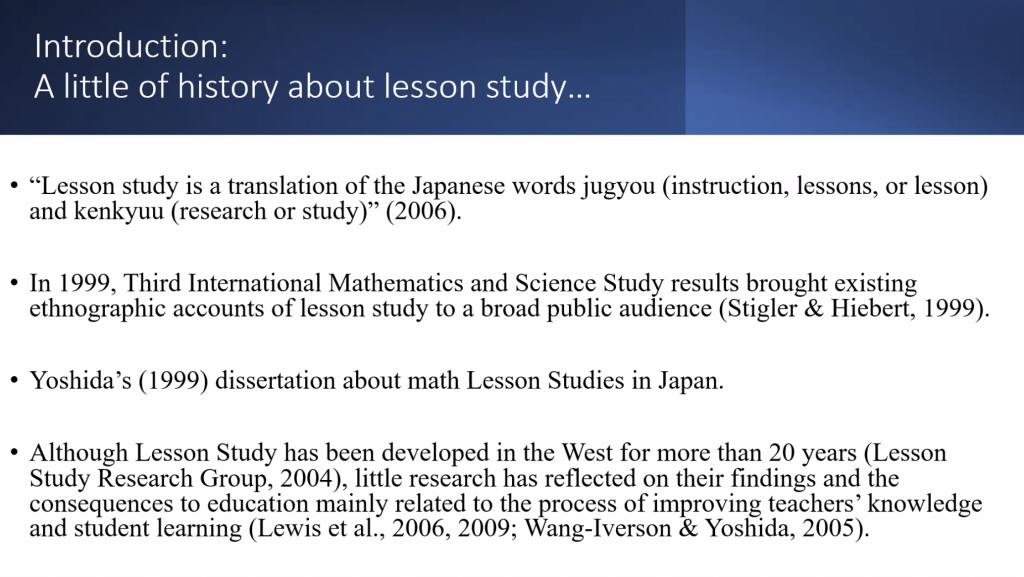Summary of SyMETRI Meeting: January 22nd, 2024 by Qiaochu Xu
Presenter/Guest Speaker: Ariane Faria dos Santos from Department of Curriculum and Pedagogy, Faculty of Education, UBC
Date: January 22nd, 2024
Host: Dr. Cynthia Nicol
In the SyMETRI meeting on January 22nd, 2024, PhD student Ariane Faria dos Santos presented ideas for her paper, which was accepted for presentation at AERA (American Educational Research Association) in Philadelphia, April 2024. It’s very exciting that Ariane’s paper has been accepted to AERA, a premier international conference.
Ariane’s paper is titled: “How has Lesson Study Research Improved Instruction? A Literature Review on Lesson Study in Mathematics.” Lesson study is a form of teacher professional development that originated in Japanese schools. Over the past few decades, the method has been adapted for use in Canadian and American schools. Ariane shared her findings of her literature review, exploring how lesson study has impacted teachers’ knowledge and beliefs, professional community, and teaching–learning resources.
Here are some slides from her presentation:
 After the presentation, SyMETRI members raised questions about why certain papers were chosen from this journal. They also discussed the differences in the focus of findings of Lesson Study in different countries and how teaching-learning resources changed in lesson study for teachers and students before and after Covid. Additionally, SyMETRI members offered some suggestions for presentations at international conferences, contributing to a lively and informative discussion.
After the presentation, SyMETRI members raised questions about why certain papers were chosen from this journal. They also discussed the differences in the focus of findings of Lesson Study in different countries and how teaching-learning resources changed in lesson study for teachers and students before and after Covid. Additionally, SyMETRI members offered some suggestions for presentations at international conferences, contributing to a lively and informative discussion.
Bio
Ariane Faria dos Santos is a Ph.D. student at the University of British Columbia Department of Curriculum and Pedagogy. Her research interests include curriculum implementation and teaching practices to improve learning opportunities for students with different backgrounds. She particularly interested to understand how to better connect both micro (classroom/schools) and macro (policymakers) actors to design and implement more equitable curriculum policies.

